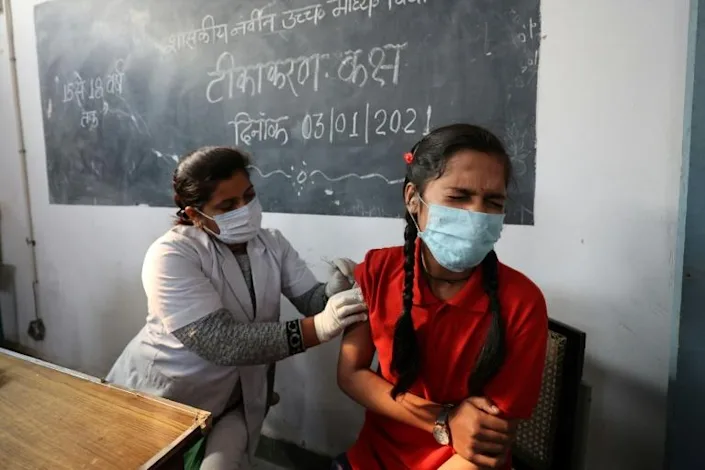Unequal access to COVID-19 vaccines is widening the gap between rich countries and the developing world, threatening the cooperation needed to tackle common challenges such as climate change, the World Economic Forum warned on Tuesday.
In its annual Global Risks Report, the Swiss foundation behind the annual Davos gathering of the rich and powerful warned that vaccine haves and have-nots were increasingly on divergent paths.
"A greater prevalence of COVID-19 in low-vaccination countries than in high-vaccination ones will weigh on worker availability and productivity, disrupt supply chains and weaken consumption," the 17th edition of the report, which surveys global experts, warned.
"Moreover, a lower post-pandemic risk appetite in the vaccinated world -- comprised mostly of advanced economies -- could weaken their investment in the non-vaccinated world," it added.
According to the World Health Organization, 98 countries have yet to vaccinate 40 percent of their population -- a stark contrast with the situation in many Western countries, where vaccination rates hover around the 70-80 percent mark.
Rich countries have been accused of hoarding vaccines, with only a fraction of the billions of doses produced last year winding up in the arms of people in countries with the most fragile health systems.
The WEF warned that the growing gulf between rich and poor countries would create a poisonous legacy of resentment, making it harder to reach agreements on global issues such as climate change, managing migration flows and halting cyberattacks.
The climate crisis displaced the pandemic this year as the biggest risk for the world, accounting for five of the top 10 risks for the world over the next 10 years.
But the report also highlighted the continuing fallout of the pandemic, with developing economies struggling to bounce back from successive lockdowns while rich countries emerge more resilient.
"By 2024, developing economies (excluding China) will have fallen 5.5 percent below their pre-pandemic expected GDP growth, while advanced economies will have surpassed it by 0.9 percent -- widening the global income gap," the survey predicted.
The WEF also emphasised the "societal scarring" caused by the pandemic, including in rich countries.
As protesters around Europe rally against the introduction of vaccine mandates, one of the top threats flagged up in 31 countries, including France and Germany, was the "erosion of social cohesion".






















































